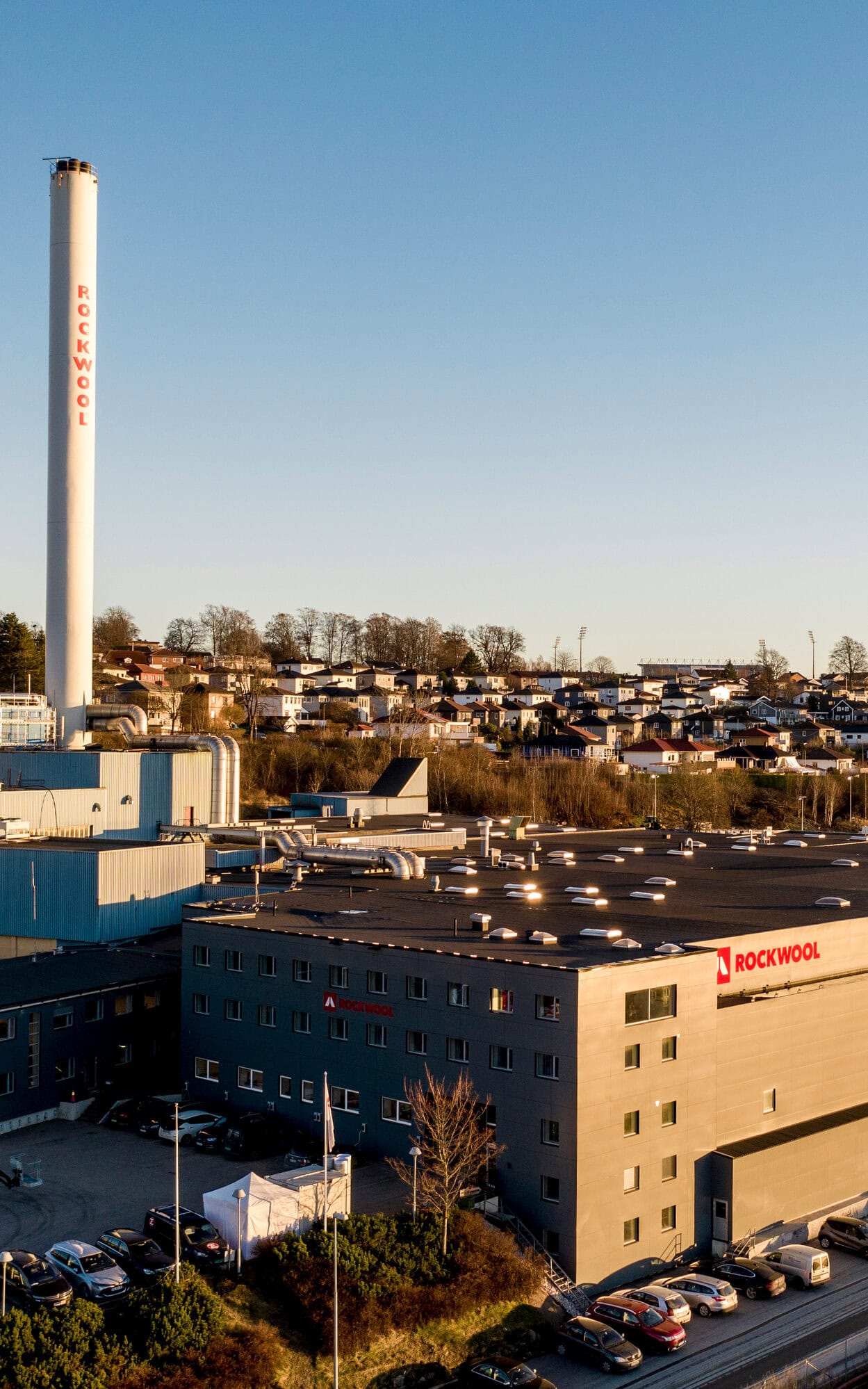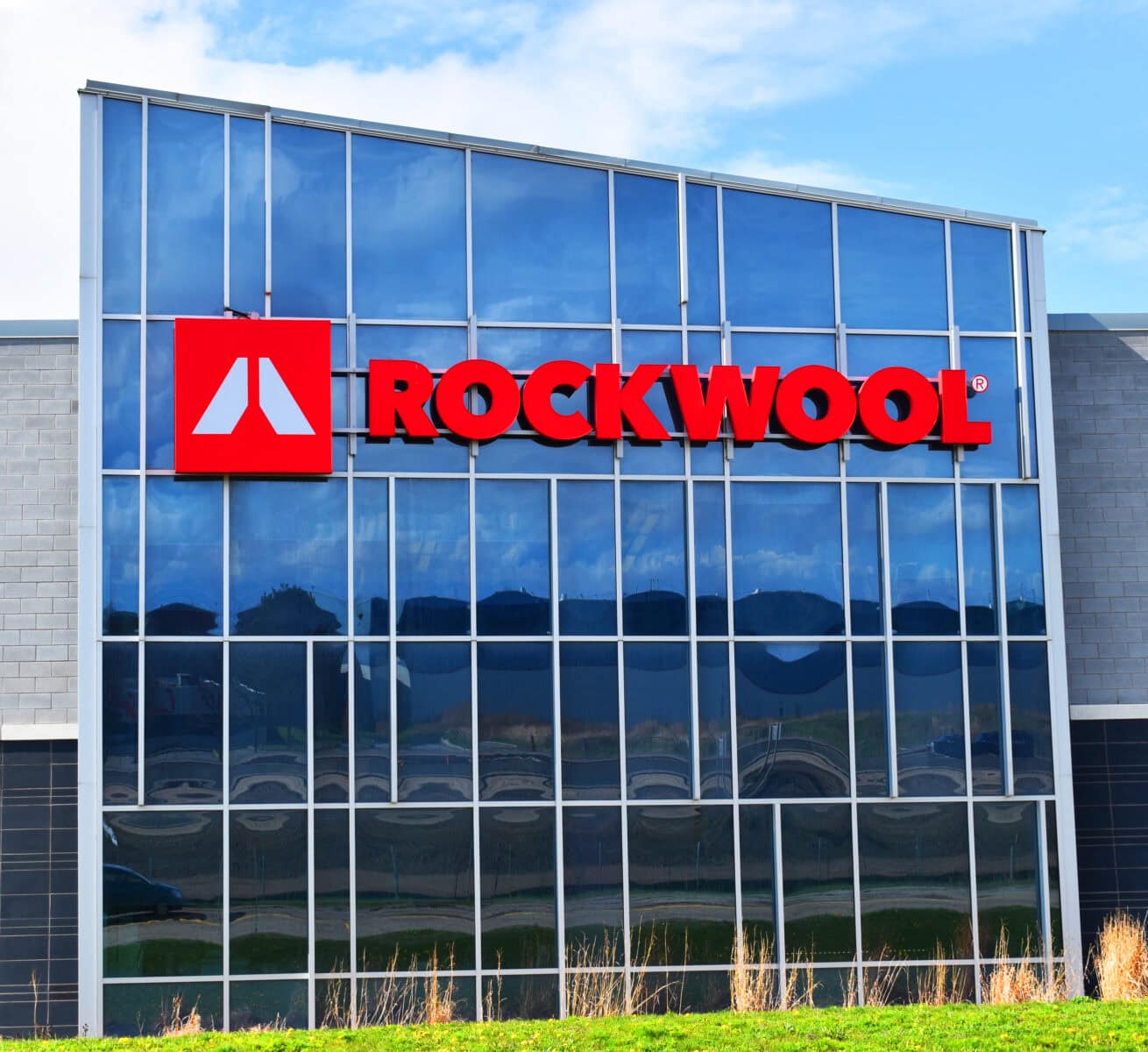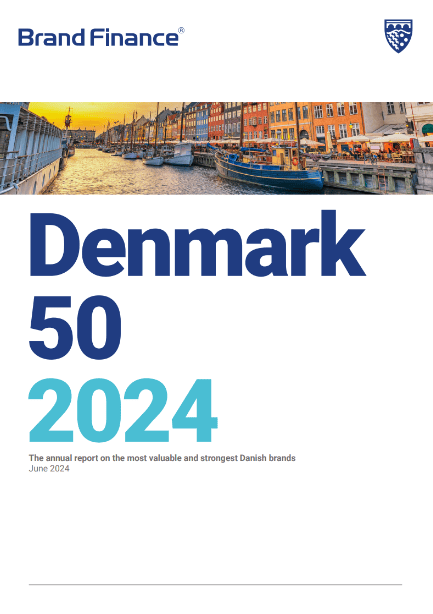This article was originally published in the Brand Finance Denmark 50 Report.
ROCKWOOL (brand value DKK3.6 billion) maintains an AA+ rating and ranks as Denmark’s third strongest industrial brand, boasting a BSI score of 75.3 out of 100. ROCKWOOL performs well across brand strength metrics, such as promotion and its ability to command a price premium.
Despite noting a slight decline in brand value after two consecutive years of growth, due to more conservative growth projections, ROCKWOOL’s brand remains a core asset, currently accounting for approximately 11% of the brand’s business value. This is underscored by ROCKWOOL’s strategic initiatives, such as the rebranding of various Lapinus product lines under the main ROCKWOOL brand.
ROCKWOOL ranked second across all three ESG dimensions among Danish industrial brands, attributed to its commitment to climate resilience and sustainability. Stone wool is a recyclable material that forms the basis of all ROCKWOOL’s businesses, underscoring the brand’s overarching approach. The brand aims to address sustainability challenges including reducing energy and other resource consumption while enhancing community resilience against fire and flooding, further emphasising ROCKWOOL’s leadership in sustainable development among Danish industrial brands.
Interview with Mirella Vitale

How does ROCKWOOL approach sustainability and its role in addressing climate change, one of humanity’s biggest challenges?
As a building materials company, sustainability is central to our business and incredibly important for the construction industry’s future. To understand why, let’s look at some figures.
Buildings are Europe’s largest energy consumers, accounting for 40 percent of total primary energy demand and more than one-third of the region’s GHG emissions. Buildings are also the largest global consumers of raw materials and producers of waste.
Changing that is both a huge challenge and opportunity for our industry. For example, in new buildings and energy renovations of old ones, we need higher standards for energy efficiency and fire safety as well as requirements for the use of durable, recyclable materials. Our stone wool products help buildings meet these criteria.
We also know it isn’t enough that our products have a positive impact. We have committed to decarbonising our manufacturing with near-term goals and a longer-term net-zero target for 2050. One of the most important ways we are doing that is by electrifying the stone wool melting process at our factories.

What is it about working at ROCKWOOL that young people starting a career would find interesting and exciting?
I think a lot of people want to work at a company they believe is making a difference in people’s lives and for the planet. At ROCKWOOL, we’re doing just that. The products we make have a hugely positive effect in the built environment and in the communities where people live, work, learn, and play.
We're both an R&D and commercially driven company. Developing solutions and innovative products and creating the subsequent market-specific strategies and campaigns is a big part of what we do. We combine business knowledge with engineering to serve our markets and customers in the best possible way. We are resilient in our pursuit of success. Continuous improvement is part of our culture. Related to that, we encourage our R&D colleagues to use 10 percent of their time to experiment and think outside the box.
We’re almost finished constructing an “innovation village” at our headquarters, which is designed to facilitate testing and developing new ideas and applications for stone wool.
We’re also using that brainpower to address our own challenges. For example, we’re investing heavily in electrifying our factory melting technology as the main lever to reach our decarbonisation targets. We have hundreds of engineers working on big and small projects critical to those efforts.
I also think many people will find our international nature very appealing. We have 83 nationalities represented among our 12,000 colleagues – and 38 just at our headquarters. That makes it an interesting work environment in our offices and factories in 40 countries across Europe, North America and Asia. And we keep growing, too.
What is a trend that you think will grow in importance and shape business in the future?
If I had to choose one that I think (and hope) will grow in importance, I would say circularity. The construction industry consumes roughly half of virgin resources globally, and the built environment is responsible for 30-40 percent of the global waste generation. We need to do better than that.
ROCKWOOL’s products and production processes are aligned with the circularity principles of designing out waste and pollution; keeping materials at their highest value; and restoring natural systems. You will find our recycling programme, Rockcycle©, in 21 countries now, with a goal of reaching 30 by 2030.
It’s not how the current economy is set up, but with cooperation between the public and private sector among other things, it’s a transition that needs to happen.


